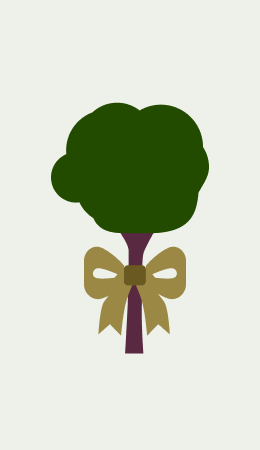Update from the field: Planting season in Tanzania!

Dear Tree Friends,
After Covid delayed the planned journey for quite some time, we are now happy and excited to share with you some insights and stories from our recent trip to Tanzania! We were able to visit two of our project partners during the beginning of the rainy season - which was perfect timing because rain means planting time!
In Tanzania, we are active in the Usambara Mountains in the Northeast of the country. The Usambara Mountains, as part of the Eastern Arc Mountains, are considered a significant biodiversity and ecological hotspot and a heritage area. The nature is truly stunning, incredibly green and rich. You look around and cannot believe the diversity of birds, chameleons, tree types and flowers surrounding you. To ensure the preservation of this sensitive hotspot, the Tanzanian government has established several protection zones within the region. Nevertheless, the forests of the Usambara Mountains have suffered tremendously in the past decades due to fires or illegal logging activities, leading to large mountain areas being degraded and deforested. One reason behind this is that the villages scattered throughout the mountain regions suffer from poor infrastructure and very low income. Most people depend on subsistence farming and, when this does not yield enough harvest, some engaged in illegal activities to expand their income.
Therefore, the region is in dire need of support and the impact which tree-planting can achieve is tremendous! When being in Tanzania you again understand the importance of supporting economical, ecological and social goals simultaneously when wanting to make sustainable and holistic progress - the so-called triple bottom line of sustainability. The local communities genuinely care about the conservation of their heritage region and their beautiful nature but at the same time economic realities make the local situation harsh. Therefore, the local communities need to be economically and socially empowered in order to benefit from their own forests in the long run and create lasting change.
We have been active in both the East and West Usambara Mountains since the very beginning of Grow My Tree. Being there in the rainy season enabled us to see not only the preparation of seeds & the growth and grafting of seedlings in the nurseries but to observe the whole tree-planting process from transportation to offloading to preparing the planting sites up to the actual planting and tracking of the trees (if you want to get a better understanding of the processes involved, please have a look at our methodology here).We also learned a lot about the positive impact which tree-planting has created in the region. Particularly the female workers in the nurseries explained to us how the work has changed their lives and empowered them while enabling them to dream about a future economic independence. Also, the spirit of the female (offloading the seedlings and planting them) and male (freeing the planting sites from grass and digging the holes) planters was beautiful to observe. There was beautiful singing, dancing and fun while doing the hard work on the ground in front of a stunning view.
Some voices:
- "I have always loved gardening and nature - being able to work with my hands is something I truly enjoy."
- “I am a widow and struggled without a job. Now I am saving up to buy a house for me and my children.”
- “People need to understand that we have to save our forests. Planting trees changes the mindset of people around here.”
- “Our whole community has greatly benefited from tree-planting activities. Still, there is a lot to be done since many more sites require restoration.”

Tree-planting provides hundreds of people in the Usambara region with income opportunities and enables particularly women to become financially independent. At the same time, the fruit trees given to local farmers creates additional income which again decreases the incentive to engage in illegal logging activities. Local schools are also involved, so that children learn the importance of forest and nature conservation from an early age. We visited different schools which have their own little tree nurseries, so that children can observe the process from seed to seedling and understand how long it takes from seed to forest.
As we always see, it is not about growing a single tree, it is about creating a whole healthy ecosystem! And this ecosystem does not only encompass nature but also the local communities - just as the Usambara region encompasses stunning mountains, diverse animals and plants and beyond that many smaller and larger villages with lots of life and wonderful people.
Thank you for enabling us to support this region, restore nature and empower communities! The impact of your actions can be felt everywhere in the Usambara region - and is changing many lives, not only in Tanzania but also in the other project regions. In Tanzania, the rain and the planting activities will continue for another few weeks - after this, it is time to prepare for the next shorter rainy season at the end of the year and restock the nurseries, plus to continuously check the health of the planted sites and fruit trees.
We are looking forward to doing even more in the future and sharing with you further updates and stories from the field!
Till then - From trees with love,
Grow My Tree
write a comment
Comments are approved before posting.








